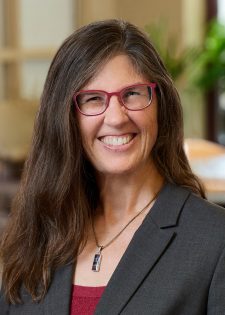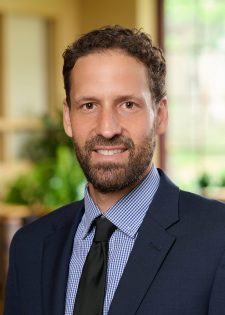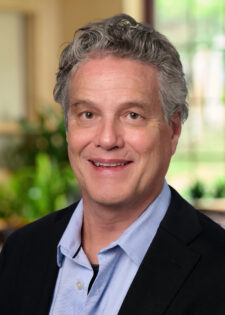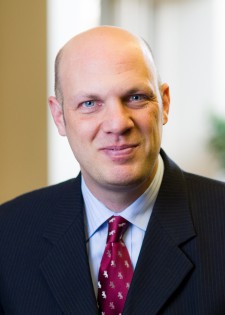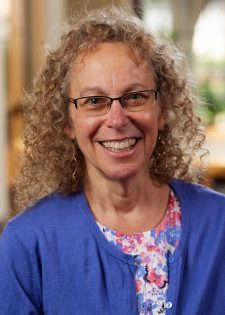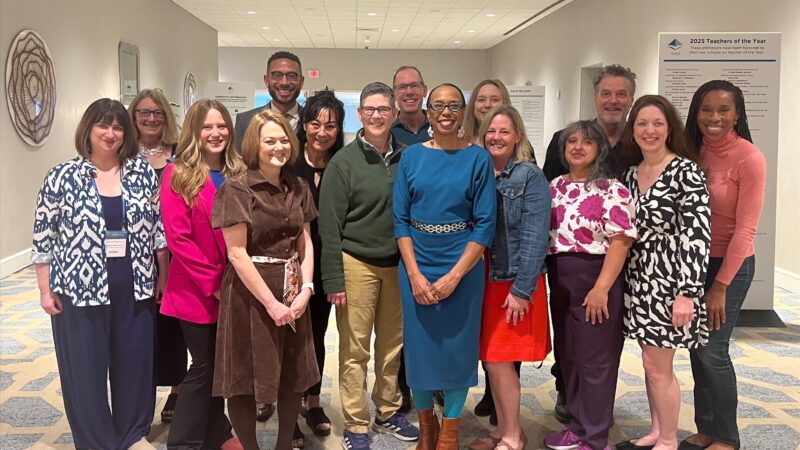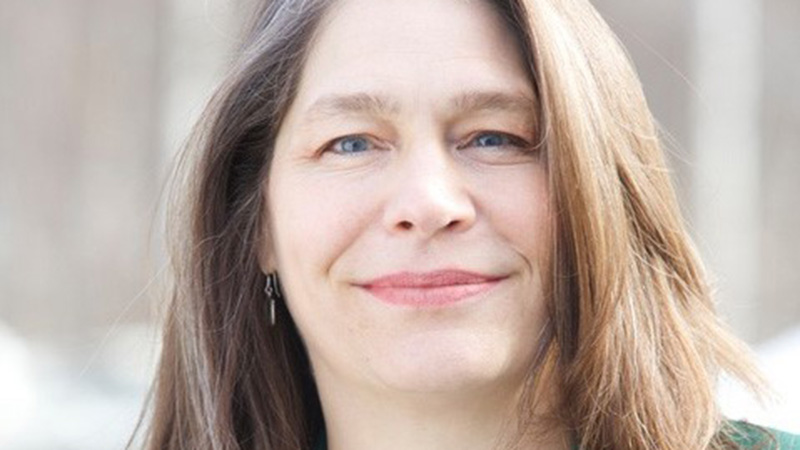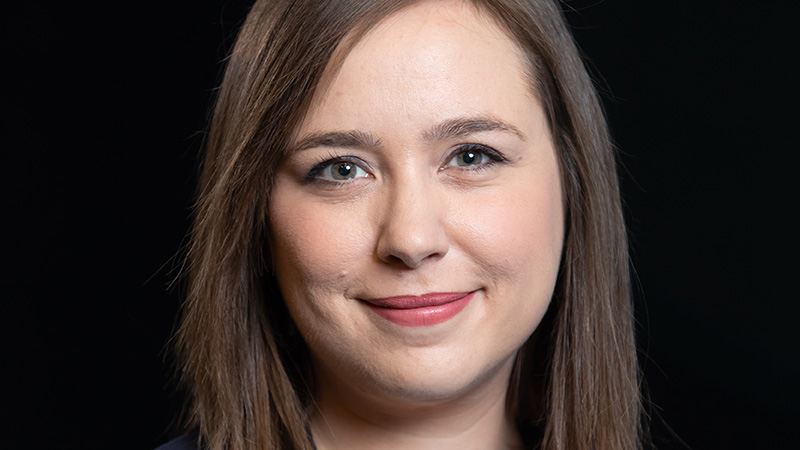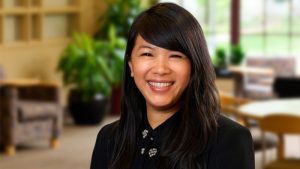
Associate Professor Kim Vu-Dinh
One of Mitchell Hamline’s newest professors recently debuted a clinic that will give students experience representing clients working on behalf of historically disenfranchised communities.
The Economic Inclusion Clinic is a continuation of the work Associate Professor Kim Vu-Dinh did at the William Bowen School of Law at the University of Arkansas at Little Rock. “Many law schools offer transactional clinics in which students get experience with the legal procedure required to form new businesses or new nonprofits,” said Vu-Dinh. “This is important and meaningful work, and we’re lucky to have clinics like this at Mitchell Hamline.
“The Economic Inclusion Clinic is a little different in that its clients are organizations that work directly with communities of color that face barriers to access in forming a new business or growing in capacity.”
Vu-Dinh says the clinic is focusing on helping such organizations grow in capacity themselves “so they can continue doing the awesome work they’re doing in targeting inequality by creating opportunities within BIPOC communities.” She cites the example of a nonprofit focused on lending that wants to expand; those organizations need legal help figuring out what they can and cannot do as a nonprofit. Another example would be a community-based organization that already provides healthcare but realizes their community also needs and wants affordable housing. “That’s where the Economic Inclusion Clinic comes into play.”
This fall’s inaugural clinic course includes six students who will work on many elements of legal work – from reviewing and drafting important documents that will assist organizations to giving counsel on complicated legal rules surrounding banking or tax regulations. There will also be work in tandem with public offices to research policies that promote economic inclusion.
Students this semester are also working with a tribal housing corporation and a nonprofit that helps clients with debt reduction and financial literacy.
“Our students get the rare opportunity to see the kinds of organizations we’re partnering with and how they work on the ground to end disparities in so many facets of life,” added Vu-Dinh. “There will be times students help draft model legislation that could help close some of these gaps. There will be other times when they help nonprofits understand the rules surrounding lobbying. Other times, they’ll help collect evidence for eventual litigation against bad actors who take advantage of the disenfranchised.
“We hope to build a well-rounded set of experiences for students.”
The clinic is scheduled to be offered during the fall and spring semester and is open to both traditional on-campus students and those in the blended-learning program.
“We’re excited to have Professor Vu-Dinh’s scholarship here at Mitchell Hamline,” said Assistant Professor Natalie Netzel ’15, co-director of the law school’s clinical education program. “This will be an important piece in how we educate our students in where inequities exist in the law, with the hope they will work in their careers to address them.”
Vu-Dinh’s academic and professional work has focused on finding more inclusive ways to foster economic development in underrepresented and underbanked communities. That has included researching innovative ways to reform financial and legal institutions to address the needs of such communities.
At Bowen, she designed the Business Innovations Clinic to foster economic development through small business and nonprofit capacity-building. That work included creating an incubator called Innov-Eat Café, where her clinic provided legal assistance and invited food businesses to sell their products on campus.
Working in Arkansas also gave her insight into the challenges faced by small farmers and butchers, which led her to write an article – called “Where’s the beef? Meat shortages, farmer needs, and long-term recovery in a pandemic era” – in which she makes numerous policy proposals. It was recently published in the peer-reviewed Journal of Animal and Environmental Law at Brandeis School of Law, University of Louisville.
Vu-Dinh also previously worked in New Orleans in the years after Hurricane Katrina with several nonprofits and small, local businesses developing affordable housing and community-based commercial projects with multiple direct service organizations exclusively working with BIPOC communities.
“I’ve had a lot of opportunities to work on racial inequality in urban areas, especially when I was in New Orleans,” she said. “My time in Arkansas helped me see how similar those inequalities are to those faced by rural communities. Now I’m looking forward to working with small farmers and butchers in the Midwest.” She’s currently working on an article entitled “Forgotten Farmers: Economic injustices and opportunities for collaboration with BIPOC communities.”
“There’s a lot of overlap there, and I’ve been so fortunate to work with some pretty great people from both communities,” said Vu-Dinh. “It just seems to me that it’s time for collaboration.”
Mitchell Hamline faculty
The latest from Faculty in the News
Nonprofit Quarterly February 11, 2026
KAXE February 11, 2026
Star Tribune February 12, 2026
The latest faculty publications
Psychological Medicine. 2026;56:e16 January 14, 2026
The American Journal of Bioethics, 26(1), 41–43 January 14, 2026
Book February 1, 2026
The latest faculty headlines
Mitchell Hamline faculty showcase expertise at 2026 AALS Annual Meeting
From left: Miriam Itzkowitz, Laura Reilly ’94, Natalie Netzel ’15, Tressa Ries, Jared Mollenkof, Kaori Kenmotsu ’22, Carolyn Grose, Anthony Niedwiecki, Camille Davidson, Eleanor Frisch, Lynn LeMoine ’11, Hetal Dalal, Brad Colbert ’85, Leanne Fuith ’10, …
Mitchell Hamline welcomes Jessica West to faculty
Assistant Professor of Law Jessica West Joining the Mitchell Hamline faculty as an assistant professor of law, Jessica West combines a passion for student success with her experience as a practitioner to help law students build the skills they need for …
Eleanor Frisch joins legal writing faculty
Assistant Professor of Law Eleanor Frisch Having a strong sense of justice and being skilled at argumentation are what first led Eleanor Frisch (they/she) to a career in law, but it is a much deeper passion that has turned her now to teaching—a love fo …

